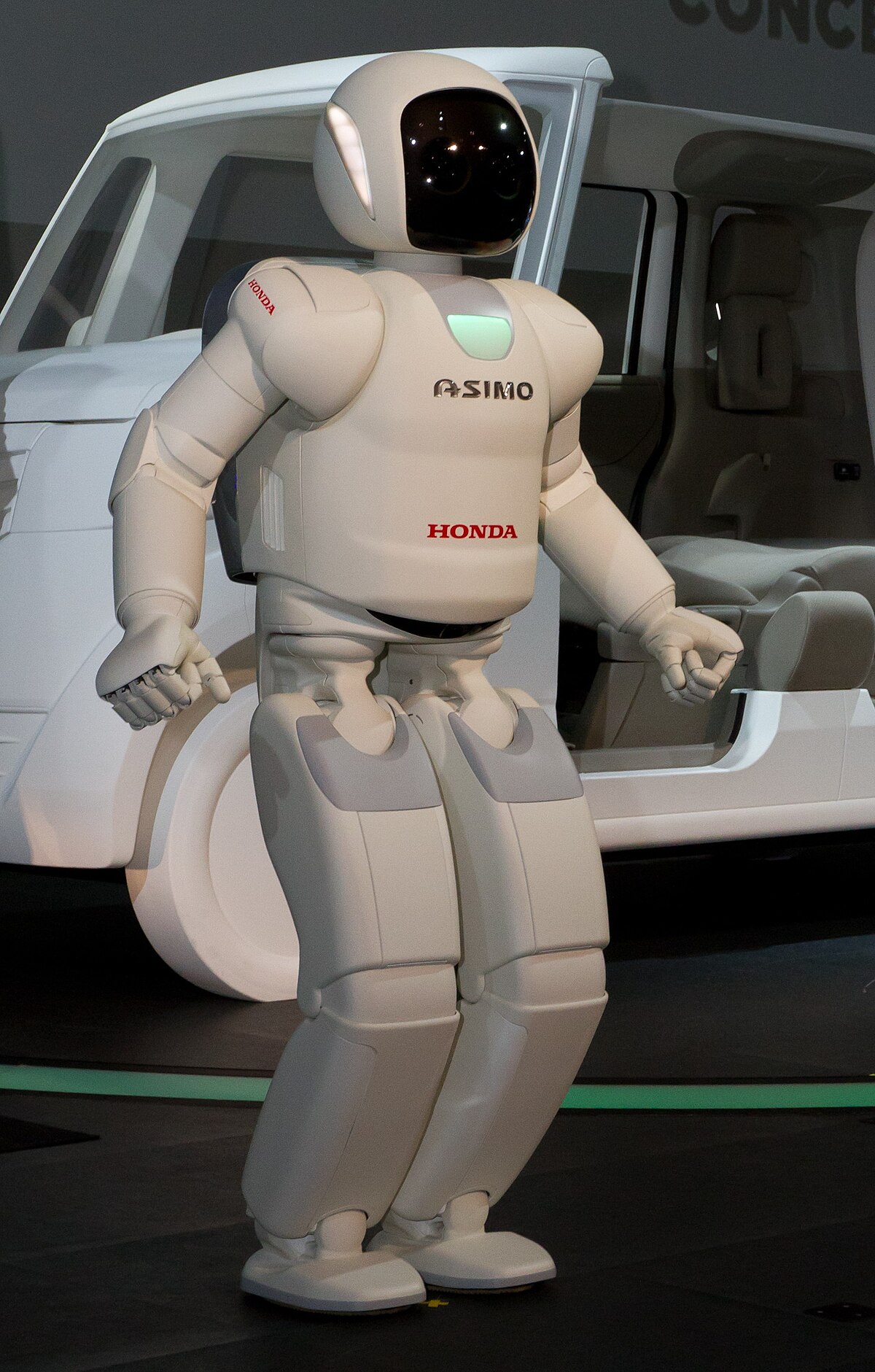ASIMO
HondaResearch
Prototype
Overall Score85/100
Not for Sale
Honda's pioneering humanoid robot that helped establish the foundation of modern humanoid robotics. Known for stable walking and human-like movement.
Height:1.3m
Weight:50kg
Released:2000
Last Tested:2022-03-01

Demo Video
ASIMO Performance Profile
Robot
Human Baseline
85
Mobility
(20%)
60
Explosive
(10%)
92
Stability
(15%)
78
Dexterity
(20%)
75
Perception
(15%)
60
Language
(10%)
95
Safety
(5%)
70
Energy
(5%)
55
Generalization
(5%)
85
Maintenance
(5%)
Specifications
Height1.3m
Weight50kg
Degrees of Freedom57
Actuator TypeElectric motors
Power SourceLi-ion Battery
Operating Time1 hour
SensorsCameras, gyroscopes, accelerometers
ComputingEmbedded control system
Key Features
Pioneering bipedal walking technology
Advanced balance control
Human-like proportions
Stair climbing capability
Research platform legacy
Test Info
Last Tested
2022-03-01
Test Location
Honda Research Institute
Certifications
Research Safety ApprovedIEEE Standards
Detailed Test Results
10-Dimensional EvaluationWalking Speed
85/ 100m/s
Stable 1.6 m/s walking speed
Performance vs Human Baseline85%
Test Method: 100m walking test
Endurance
75/ 100hours
1 hour continuous operation
Performance vs Human Baseline75%
Test Method: Continuous operation test
Agility
90/ 100score
Excellent stair climbing and turning
Performance vs Human Baseline90%
Test Method: Agility course assessment
Category Average:85/100
Weight:20%
Human Baseline:100/100
10-Dimensional Test Protocol
All tests conducted according to the comprehensive humanoid robot evaluation standards with human performance as baseline (100%). The new system evaluates: Mobility (20%), Dexterity (20%), Stability (15%), Perception (15%), Explosive Power (10%), Language (10%), and four supporting dimensions (5% each).
Advantages
Pioneering humanoid robot technology
Excellent stability and balance
Human-safe interaction design
Proven reliability over decades
Influenced entire industry development
Limitations
Not available for commercial use
Limited learning capabilities
Aging technology platform
Short battery life
Primarily demonstration-focused